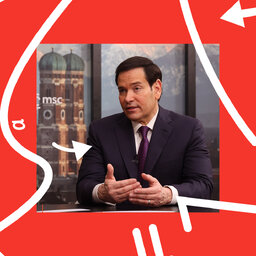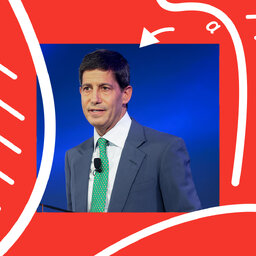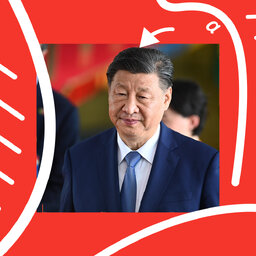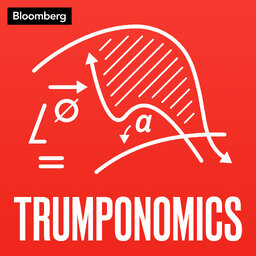Voternomics LIVE: Europe's Rightward Shift, Macron's Snap Election, and Tory Party Train Wreck
It’s been a busy few days in the world of economics and politics. The big developments include UK Prime Minister Rishi Sunak’s damaging decision to skip a high-profile D-Day event, voters across Europe handing gains to right-wing parties and French President Emmanuel Macron’s surprise announcement of snap elections.
All of this was discussed at a live taping of Voternomics before an audience at Bloomberg’s London offices. Hosts Allegra Stratton, Adrian Wooldridge and Stephanie Flanders were joined by Editor in Chief John Micklethwait, Washington Bureau Chief Peggy Collins and Bloomberg Television anchor Francine Lacqua.
In 1 playlist(s)
Trumponomics
Tariffs, crypto, deregulation, tax cuts, protectionism, are just some of the things back on the tabl…Social links
Follow podcast
Recent clips

What Munich Means for the Shifting Global Order
28:47

Understanding Kevin Warsh's Plan for the Fed
31:28

How Trump’s Year of Disruption Has Only Helped China
27:24
 Trumponomics
Trumponomics